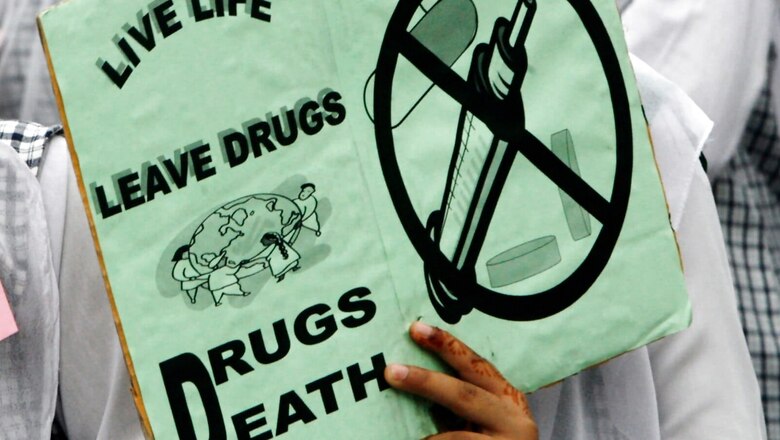
views
India may soon introduce community service for individuals found consuming drugs as the government plans to propose amendments to the effect in the Narcotic Drugs and Psychotropic Substances (NDPS) Act in the upcoming Parliament session, sources told News18.
Sources familiar with the proposed amendments said those found consuming drugs may have to undergo treatment or therapy for addiction at a rehabilitation centre, and in case they refuse, they would have to undertake community service for one year.
Some of the proposed amendments deal with Section 27 of the NDPS Act which lays down ‘punishment’ for the consumption of any narcotic drug or psychotropic substance. The Narcotics Control Bureau (NCB) had recently invoked this section in high-profile raids involving Bollywood celebrities, including actor Shah Rukh Khan’s son Aryan Khan. But the amended Act will not have any bearing on past cases since laws do not have retrospective effect.
According to sources, the government has also proposed to remove the word ‘punishment’ from the introductory text of Section 27 in the NDPS Act.
Sources added that the government may propose that individuals found consuming or possessing any narcotic drug or psychotropic substance with the intention of consuming be taken to the nearest health facility for assessment and voluntarily undergo medical treatment for addiction. The treatment can be administered by a hospital or an institution maintained or recognised by the government or local authority. In case the person does not volunteer for treatment or does not undergo the complete treatment, they shall be liable to pay a fine extending to Rs 10,000 or undergo mandatory social work involvement for one year at a government-run or supported centre.
At present, the punishment for similar charge is up to one-year imprisonment and/or fine which may extend to Rs 20,000. This section in the NDPS Act is divided into two parts depending on the substances consumed.
Part A says that “where the narcotic drug or psychotropic substance consumed is cocaine, morphine, diacetyl-morphine or any other narcotic drug or any psychotropic substance as may be specified in this behalf by the central government by notification in the Official Gazette, with rigorous imprisonment for a term which may extend to one year, or with fine which may extend to twenty thousand rupees; or with both”.
Part B says that where the narcotic drug or psychotropic substance consumed is other than those specified in or under clause (a), the punishment shall be “imprisonment for a term which may extend to six months, or with fine which may extend to ten thousand rupees or with both”.
Another important amendment the government may propose is giving powers to state governments for the cultivation of cannabis plant for industrial purposes.
According to sources, the government may empower the state governments to allow the cultivation of cannabis which is currently controlled by the central government. Sources, however, said this amendment was opposed by various stakeholders who cited that it will increase the illegal cultivation of cannabis.
The government may also propose that the Directorate of Revenue Intelligence (DRI) chief get powers equal to NCB Director-General by amending Section 50 on ‘controlled delivery’.
The ‘controlled delivery’ mechanism empowers the NCB to keep the parcel delivery alive, even after seizing the contraband, and replacing the same with a dummy parcel. The NCB D-G is authorised to order a ‘controlled delivery’ operation to unravel all layers of a drugs cartel or syndicate.
The proposal to extend these powers to the Directorate of Revenue Intelligence was, however, objected to by various stakeholders who cited that the DRI is an intelligence agency.
Read all the Latest India News here




















Comments
0 comment